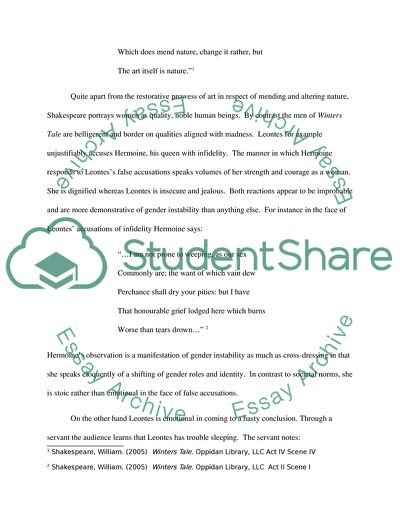Cite this document
(Sense of the Radical Instability of Gender in Shakespeare's Winters Ta Book Report/Review, n.d.)
Sense of the Radical Instability of Gender in Shakespeare's Winters Ta Book Report/Review. Retrieved from https://studentshare.org/social-science/1708305-shakespeares-cross-dressing-comedies-reveal-a-sense-of-the-radical-instability-of-gender-do-they
Sense of the Radical Instability of Gender in Shakespeare's Winters Ta Book Report/Review. Retrieved from https://studentshare.org/social-science/1708305-shakespeares-cross-dressing-comedies-reveal-a-sense-of-the-radical-instability-of-gender-do-they
(Sense of the Radical Instability of Gender in Shakespeare'S Winters Ta Book Report/Review)
Sense of the Radical Instability of Gender in Shakespeare'S Winters Ta Book Report/Review. https://studentshare.org/social-science/1708305-shakespeares-cross-dressing-comedies-reveal-a-sense-of-the-radical-instability-of-gender-do-they.
Sense of the Radical Instability of Gender in Shakespeare'S Winters Ta Book Report/Review. https://studentshare.org/social-science/1708305-shakespeares-cross-dressing-comedies-reveal-a-sense-of-the-radical-instability-of-gender-do-they.
“Sense of the Radical Instability of Gender in Shakespeare'S Winters Ta Book Report/Review”. https://studentshare.org/social-science/1708305-shakespeares-cross-dressing-comedies-reveal-a-sense-of-the-radical-instability-of-gender-do-they.


